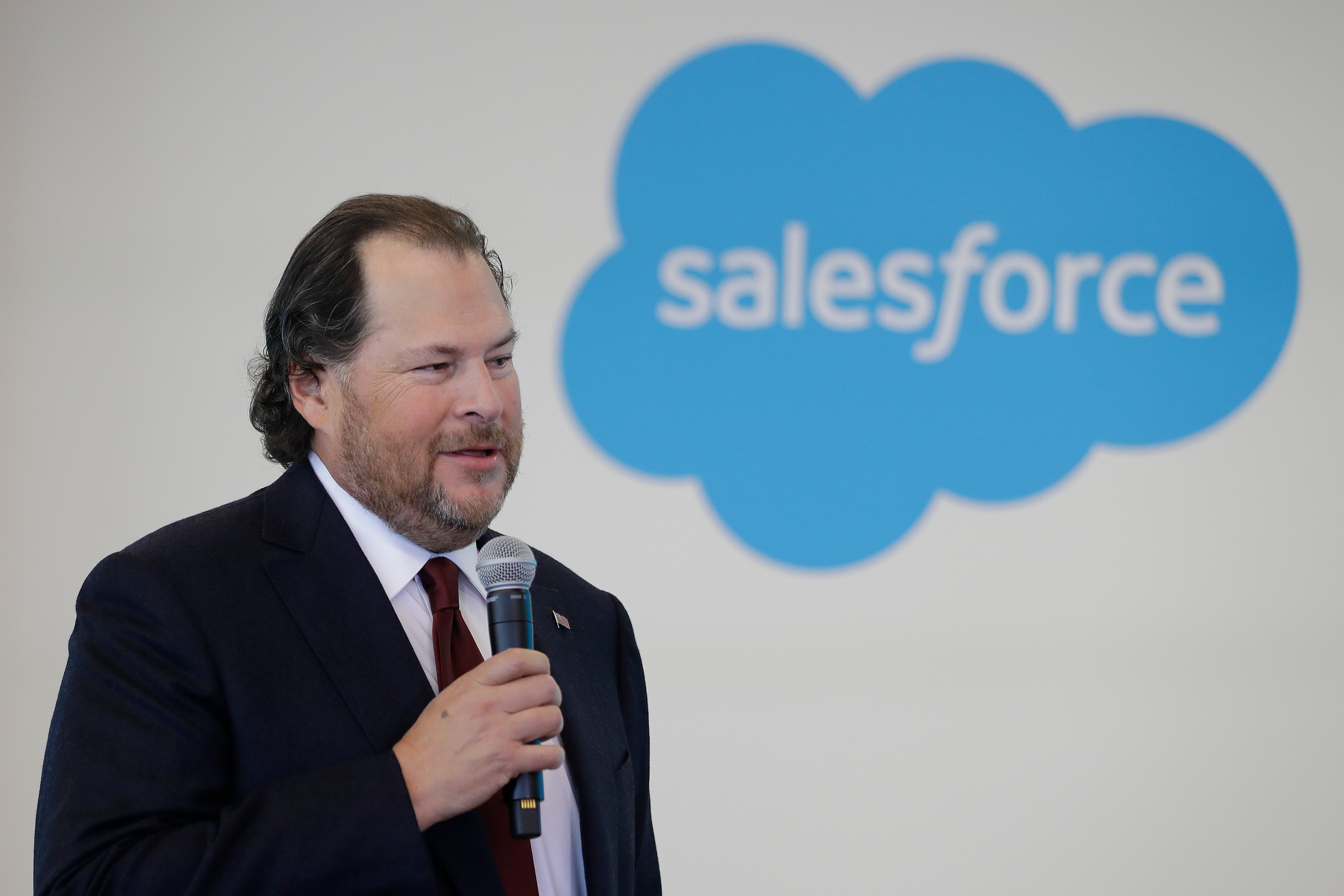Salesforce to help workers leave states over abortion laws
Business-software company Salesforce says it will help employees leave Texas if they are worried about a new law that severely restricts abortion in the state

Your support helps us to tell the story
From reproductive rights to climate change to Big Tech, The Independent is on the ground when the story is developing. Whether it's investigating the financials of Elon Musk's pro-Trump PAC or producing our latest documentary, 'The A Word', which shines a light on the American women fighting for reproductive rights, we know how important it is to parse out the facts from the messaging.
At such a critical moment in US history, we need reporters on the ground. Your donation allows us to keep sending journalists to speak to both sides of the story.
The Independent is trusted by Americans across the entire political spectrum. And unlike many other quality news outlets, we choose not to lock Americans out of our reporting and analysis with paywalls. We believe quality journalism should be available to everyone, paid for by those who can afford it.
Your support makes all the difference.The CEO of Salesforce said the company will help employees leave Texas and he did so while retweeting a story linking the offer to concern about Texas’ new anti-abortion law.
Salesforce, which sells customer-management software, joins a small number of companies that have reacted against the Texas law.
CNBC reported that the San Francisco-based company told employees in a Slack message it will help them move “if you have concerns about access to reproductive healthcare in your state.”
On Friday night, CEO Marc Benioff retweeted a post about the story, adding, “Ohana if you want to move we’ll help you exit TX. Your choice.” Ohana is a Hawaiian term for family.
The company did not return messages for comment.
The Texas law passed the Republican-controlled state Legislature and was signed by Republican Gov. Greg Abbott in May but didn’t go into effect until this month. It bans most abortions after six weeks, before many women know whether they are pregnant, and lets private residents sue anyone who helps a woman get an abortion.
By a 5-4 vote, the U.S. Supreme Court declined to block the law. This week the U.S. Justice Department sued Texas to block the law.
Ride-hailing companies Uber and Lyft, both based in San Francisco have said they will pay legal fees for any drivers who are sued for taking a woman to an abortion clinic. Dating-app provider Bumble, which is based in Texas, said it will create a relief fund for people affected by the law.
Abortion-rights activists have pressured Texas-based companies to criticize the law, but most have remained silent.